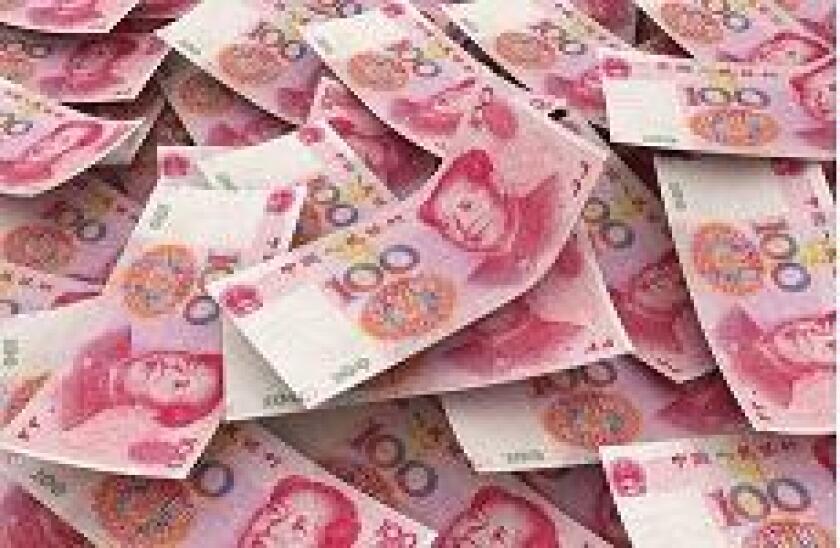The Shanghai Gold Futures and the RMB Futures were the best performing products at the Dubai Gold and Commodities Exchange (DCGX) in July, with month-on-month volume growth of 71% and 64%, respectively, according to an August 2 press release by the bourse . DCGX noted that the strong demand came amid the visit by Xi Jinping, the Chinese president, to the United Arab Emirates.
Separately, the trading volume of offshore renminbi (CNH) futures offered by Hong Kong Exchanges and Clearing (HKEX) stood at 12,367 in July, which is the highest monthly volume on record, according to the bourse .
Trading volume through the Bond Connect was Rmb115.45bn ($16.9bn) in July, down from Rmb130.92bn in June, according to figures released by Bond Connect Company Limited (BCCL) this week. That put the total trading volume between January and July at Rmb537.48bn. Average daily trading volume was Rmb5.25bn in July, higher than the year to date average of Rmb3.71bn. Bond Connect recorded a 97% month-on-month uptick in trading volume in June, according to a report by BCCL at the time. Total foreign holdings of onshore Chinese bonds hit Rmb1.545tr, up 34.6% since the end of 2017.
The State Administration of Foreign Exchange (Safe) did not approve new quota for the qualified foreign institutional investor (QFII), RMB QFII (RQFII) or the outbound qualified domestic institutional investor (QDII) programmes in July, according to the latest announcements by the regulator this week.
This came after Safe gave out Rmb6.22bn of RQFII quotas in June. US-based WisdomTree got it first batch of quotas, worth Rmb1.22bn. Hong Kong-based JF Asset Management, which is part of JP Morgan, added Rmb5bn to its quotas. The aggregate of RQFII quotas stood at Rmb622bn as of July, or 32% of all existing country quotas. The quotas were spread across 198 entities, with another 38 entities awarded an RQFII licence waiting on the sidelines, according to GlobalRMB’s recently updated RQFII database.
In May, the China Securities Regulatory Commission approved six foreign entities to participate in the QFII programme. BOB Scotia International Asset Management, Bridgewater Associates and four entities under State Street were the new entries.
Northbound flows in the Hong Kong-Mainland China Mutual Recognition of Funds (MRF) scheme slowed down in June. Overall net sales of Hong Kong funds in the mainland suffered a 12.5% month-on-month fall to Rmb9.8bn in June, the lowest level since July 2017, according to Safe’s figures. Net aggregate sales went as high as Rmb12.9bn last October.
Meanwhile, southbound flows accelerated, with overall net sales of mainland funds in Hong Kong standing at Rmb518.9m, up from Rmb429m in April.
The global pool of offshore RMB deposits has struggled to recover in the first quarter of 2018, hovering around Rmb1.148tr across seven key offshore jurisdictions, based on updated data compiled by GlobalRMB. Hong Kong, which holds by far the largest portion of that pool, saw RMB deposits inch back down to Rmb584bn in June from Rmb600bn a month earlier. That is nonetheless a 4.5% increase from end-2017. Taiwan, the second largest deposit holder, has seen its pool stabilize, and was 0.3% up to Rmb311bn in June.
China’s RMB-denominated cross-border clearing activities, meanwhile, seem to be on the upswing. Monthly clearing hit Rmb450bn in June, according to CEIC and GlobalRMB data. That brings the H1 total to Rmb2.317tr, up 7.5% from the first half of 2018. Hong Kong’s RMB clearing activities for the first half totalled Rmb2.021tr, up 16% on H1 2017.
China Life Asset Management (China Life AM) has adopted a series of technological upgrades, in a bid to strengthen its outbound QDII business, according to an August 2 announcement by Bloomberg, who is providing these upgrades. The changes will improve the company’s ability to manage multiple portfolios, trading, compliance and operations.
China Life AM is the largest asset manager in China, and had $428bn of asset-under-management by the end of last year, according to the announcement. It had $130m of QDII quotas as of July 30, according to the latest figures provided by Safe.
One RMB was sold between 49 and 51 Nigerian Naira in Nigeria’s first official auction of the Chinese currency, according to a July 30 media report. The auction came after the Nigerian central bank set up a Rmb15bn swap line with the People’s Bank of China in April.
The trade-weighted China Foreign Exchange Trade System (Cfets) Index finished July at 92.41 points, down 3.40% month-on-month. The BIS basket and special drawing rights (SDR) basket stood at 95.67 and 92.70, losing 3.36% and 3.33% in the same period, respectively.

